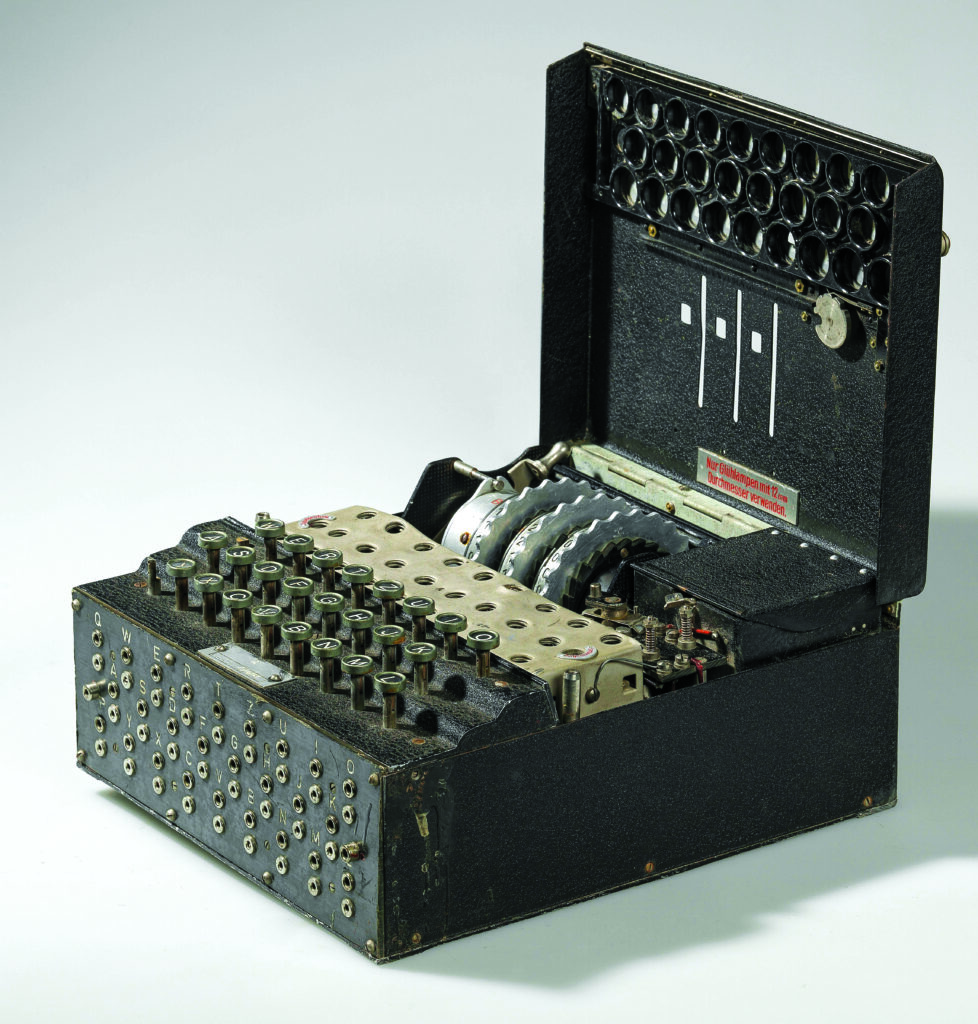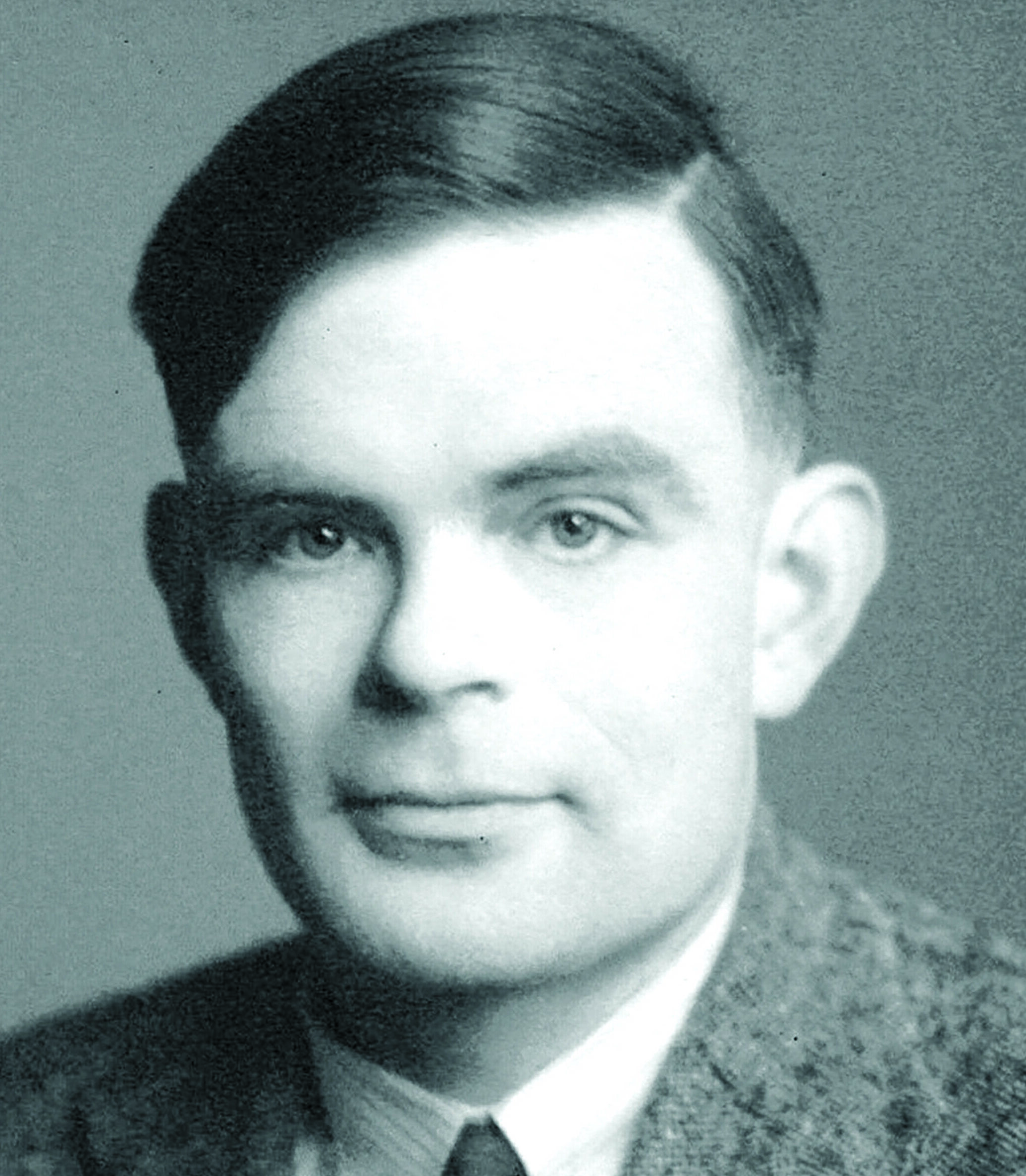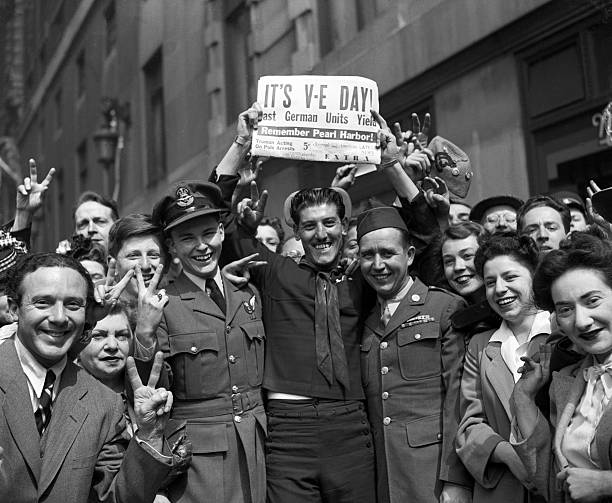Without breaking Nazi Germany’s encrypted messages, Allied forces would have lost the intelligence war, significantly altering the course of WWII.

(Photo by KT Bruce)
When radio communication was first deployed on the battlefield in the late-19th and early 20th century, military commanders faced a challenge: how to ensure these wireless messages do not fall into the hands of the enemy? One of Nazi Germany’s answers to this was Enigma, an encoding machine that had unprecedented capabilities to encrypt communications, with only the intended recipient with their own Enigma able to decrypt and read the message.
Breaking the Enigma encryption took painstaking effort by Allied forces, including the Polish intelligence services and the work of Alan Turing and his team at Bletchley Park. These efforts helped provide essential intelligence to Allied commanders, particularly in the Battle of the Atlantic. History of War spoke to historian and author Sir Dermot Turing and naval historian Larry Paterson, to discuss what could have changed if the Allies had never achieved such an extraordinary codebreaking feat.
This abridged online version of the original article contains selected extracts from our conversation with Dermot Turing, who is an author, historian and the nephew of Alan Turing. He had written numerous books about the Bletchley Park codebreakers. Turing’s latest book, The Enigma Traitors: The Struggle to Lose the Cipher War, is out now.
For more information visit www.thehistorypress.co.uk
What was the Enigma code and why was it such a formidable challenge for codebreakers?
At the beginning of the Great War, the introduction of radio communications made armed forces aware that they needed to think about encryption. Broadcast media was accessible to anybody who happened to be listening. They devised primitive encryption techniques whereby common words or phrases could be disguised by having code sequences held in a code book.
However, these codebooks were easy to reconstruct through linguistic analysis. During the interwar period, the Germans invented the Enigma machine, which enciphered a message, so every letter was converted. Instead of a classic Caesar Cipher, where a letter is changed in the same way each time, the encryption happens a different way every time a letter on an Enigma machine is pressed. The Enigma machine exploited this idea of changing the cipher every time through a set of rotors, constantly changing the pattern of encryption.

(Photo by Fine Art Images/Heritage Images via Getty Images)
By the time the Second World War came, the Germans had souped up their machine and gave Allied code breakers two huge problems. There were millions of different possible ciphers that the machine could generate and 150 million ways to set up the machine each day. All the linguists used to the old-fashioned code-breaking style were utterly bewildered by the complexity of the mechanical encryption problem.
Related: The Enigma Machine
If the Enigma code hadn’t been cracked, what would the impact be on the quality of intelligence coming out of Bletchley Park?
One thing that struck me while working on my most recent book, The Enigma Traitors, is that the British were embarrassingly slow to wake up to the fact that their codes, still of the Great War model, were being exploited. There was an ongoing complacency from the people who didn’t want to change anything.

(Photo by GL Archive/Alamy Stock Photo)
The thing that made this bad news – being told by the communications security people listened to for the first time – was that broken Enigma messages revealed that the Germans were deriving their intelligence from reading British codes. If the British had not been reading Enigma messages, then the happy state of disbelief would have continued. Had that mindset persisted, the consequence could have been that an awful lot of battles won by the Allies as a result of superior intelligence would have been turned around.
The Germans would have been winning battles based on superior intelligence. The state of affairs in the early part of the war, where the Germans knew exactly where the convoys were, could have persisted across all theatres and armed forces. That is quite scary to think about because we’re accustomed to thinking that the Allies won the intelligence war because of the genius of Bletchley Park, but it could have been the other way around.
Related: The Imitation Game does Alan Turing a huge disservice
The turning point in the middle of 1943, when the battles of North Africa had been won and the Allies were beginning to win the Battle of the Atlantic, is crucially dependent on being on top of the German intelligence story. I’m not convinced that the turning point would have happened had we not reluctantly changed our codes in June 1943. Not only did we know where the U-boats were in a convincing and permanent way, but we were also no longer telling the Germans where we were.

(Photo by © CORBIS/Corbis via Getty Images)
That contribution to the Battle of the Atlantic and the fact that we had shut the Germans out of our intelligence was crucial and dependent on us reading Enigma. Meanwhile, because the Germans didn’t read much British high-level machine-enciphered traffic during the Second World War, they couldn’t access the same knowledge about our code-breaking efforts. That explains why the Second World War’s second part was much more successful than the first.
Related: World War 2 German U-Boats: The Lone Hunters
Would failure to crack the Enigma code have been a fundamental crisis for the Allied war effort?
I’m not one to argue with Professor Harry Hinsley, author of the official history of British intelligence in the Second World War, who was at Bletchley Park. His opinion was that the work of Bletchley Park as a whole, not just Enigma, had shortened the war by about two years, saving millions of lives. What he’s not saying is that it would have affected the outcome.
The overwhelming might of the United States’ war machine, coupled with the rotten state of the Axis powers and their inability to bolster their efforts with some moral fibre, was going to spell doom for the Axis powers eventually, but at what cost?
You think about how awful it was for Europe to recover from the ravages of the Second World War and the consequences of another two years of that conflict is horrendous to think about. Not breaking Enigma might have affected the outcome of particular battles, but it would probably have just prolonged this awful conflict.

(Photo by Universal History Archive/Universal Images Group via Getty Images)
Ultimately, you don’t win wars by intelligence alone, but it is a contributing factor and let’s not underestimate its power. You win wars by fighting, but the distance of time has allowed our celebration of Bletchley Park to put into the shadows the stories we used to hear of the Second World War. In some ways, it has sanitised the war, which makes me slightly uncomfortable.
Related: VE Day 75th Anniversary – How the war in Europe was won
Learn more about Dermot Turing’s work at dermotturing.com and Larry Paterson’s at lawrencepaterson.com. To read the full article, including the remainder of our interviews with Turing and Paterson, pick up issue 131 of History of War.
